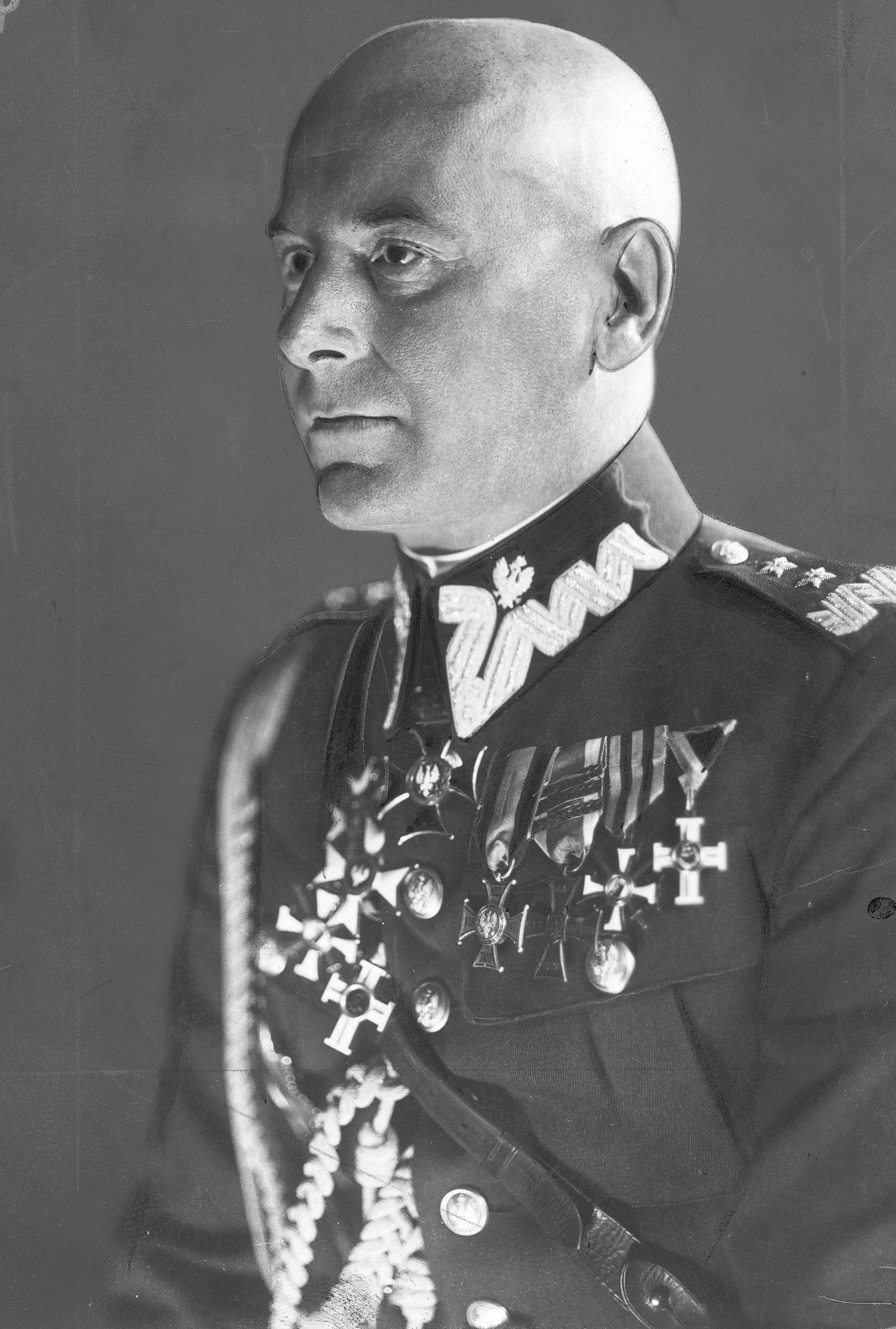Marshal Edward Rydz-Śmigły [ˈɛdvard ˈrɨdz ˈɕmiɡwɨ] , also called Edward Śmigły-Rydz, was a Polish politician, statesman, Marshal of Poland and Commander-in-Chief of Poland's armed forces, as well as painter and poet.
During the interwar period, he was an exceptionally admired public figure in Poland and was regarded as a hero for his exemplary record as an army commander in the Polish Legions of World War I and the ensuing Polish-Soviet War of 1920. His popularity grew upon his appointment as Commander-in-Chief and Inspector General of the Polish Armed Forces following Marshal Józef Piłsudski‘s death in 1935. Rydz served in this capacity at the start of World War II during the 1939 German invasion of Poland.
His military positions gave Rydz-Śmigły de facto command over all matters of national defense in time of war. Initially, he did not surround himself with any organized political grouping, but over time, he gave up the role of a disinterested observer and became more public in his views and pronouncements, and his speeches increasingly took on a political tone. Having few political connections and taking advantage of the feuds within the ruling elite following Piłsudski‘s death, he gradually emerged at the pinnacle of the nation's politics, but his tenure was characterised by grave domestic problems and failures in foreign policy. The ruling elite attempted to draw attention away from these problems by promoting Rydz-Śmigły as Piłsudski‘s heir and a natural patriotic magnet for all of society, with its own propaganda and sloganeering, giving rise to the notion that his leadership would lead Poland out of its nearly impossible geopolitical situation.From 1937 onwards, the increasing threat from Adolf Hitler's Nazi Germany further strengthened Rydz‘s stature as the "first soldier of the Republic". As war loomed, political differences fell away and defense became the national priority. As a result, Rydz‘s stature eclipsed even that of the president. Posters bearing his image adorned public buildings and bulletin boards, as his athletic pose and gentle smile evoked confidence in the population at large. This adulation reached its zenith just before the outbreak of hostilities and included songs, poetry, and almost daily revelations about his life in Polish newspapers. The shock of the Polish defeat made objective evaluations of his legacy during and after the war difficult; his reputation, so much tied to the critical early months of World War II, remains tendentious and controversial.
✵
11. March 1886 – 2. December 1941
